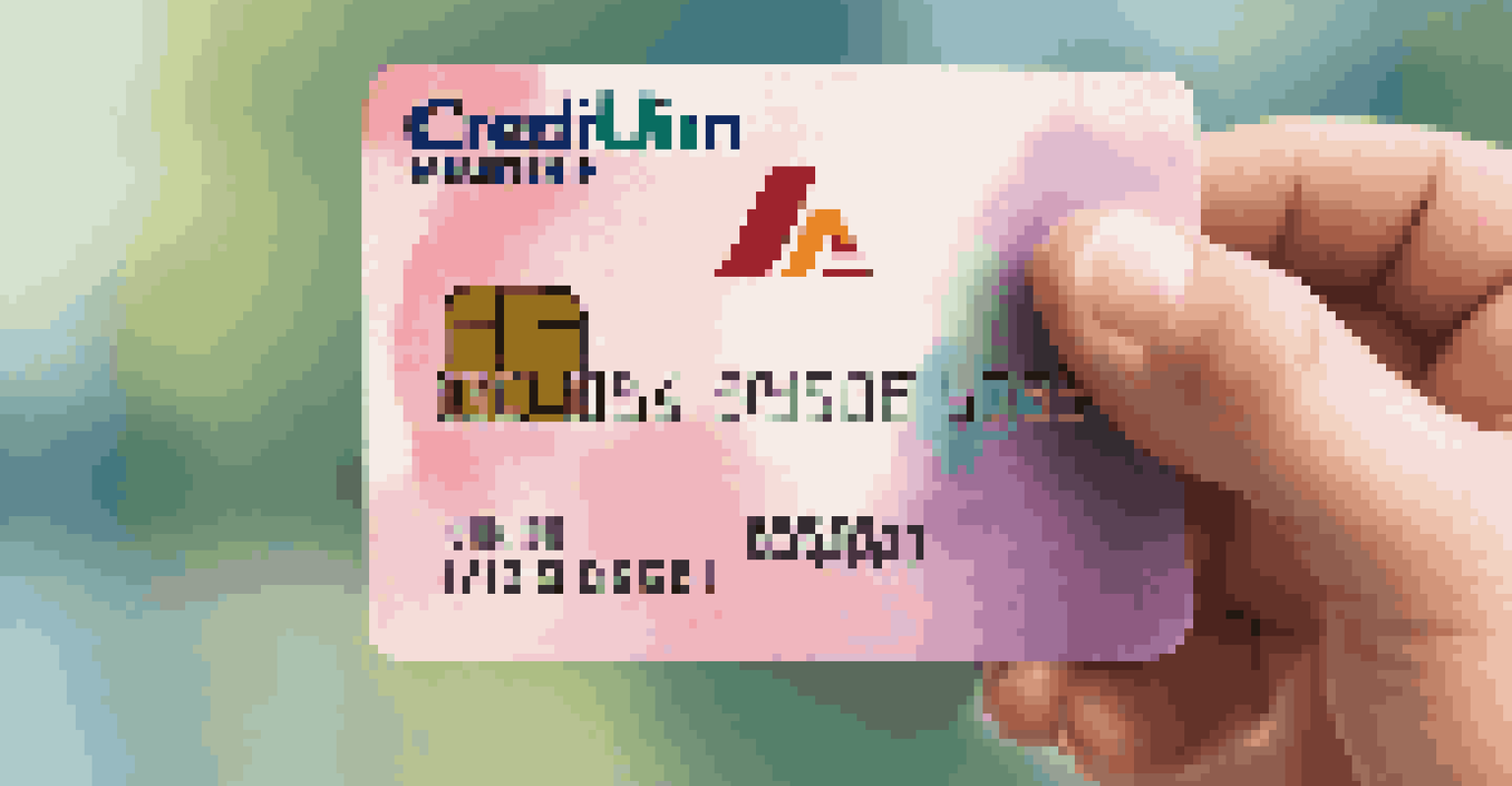The Pros and Cons of Using Credit Unions for Home Loans

Understanding Credit Unions and Home Loans
Credit unions are member-owned financial institutions that often provide a more personalized approach to banking. Unlike traditional banks, they focus on serving their members rather than maximizing profits. This unique structure allows credit unions to offer competitive home loan options tailored to individual needs.
A credit union is a cooperative, which means it’s a financial institution that is owned and controlled by its members.
When it comes to home loans, credit unions may provide lower interest rates and fees compared to conventional banks. They often prioritize community involvement and customer service, which can make the borrowing process feel more approachable. Additionally, credit unions may have more flexible lending criteria, making it easier for certain borrowers to qualify.
However, it's essential to understand that not all credit unions are the same. Some may have limited resources or fewer loan products compared to larger banks. Therefore, it's crucial to research and compare options to ensure you're getting the best deal possible for your situation.
Pros: Lower Rates and Fees
One of the most significant advantages of using a credit union for home loans is the potential for lower interest rates. Credit unions typically have lower overhead costs compared to larger banks, allowing them to pass those savings on to their members. This can lead to significant savings over the life of a mortgage.

In addition to lower interest rates, credit unions often charge fewer fees. Many credit unions will waive or reduce closing costs, which can make the overall cost of borrowing more affordable. This is especially beneficial for first-time homebuyers who may be working with a limited budget.
Lower Rates from Credit Unions
Credit unions often offer lower interest rates and fees compared to traditional banks, making home loans more affordable.
Ultimately, lower rates and fees can make homeownership more accessible. By reducing these financial burdens, credit unions can help families achieve their dreams of owning a home while keeping their monthly payments manageable.
Pros: Personalized Service and Support
Another significant advantage of credit unions is the level of personalized service they provide. Since credit unions are member-focused, they often take the time to understand each borrower's unique situation. This can lead to tailored loan solutions that better meet individual needs.
The best way to find yourself is to lose yourself in the service of others.
Borrowers may also find it easier to communicate with loan officers at credit unions. With smaller teams and a more community-oriented approach, customers often receive faster responses and more attentive service. This can alleviate some of the stress that often comes with the mortgage process.
Moreover, credit unions are generally more willing to work with members who might have less-than-perfect credit, providing guidance and support on improving their financial standing. This compassionate approach fosters a sense of trust and loyalty among borrowers.
Cons: Limited Product Offerings
While credit unions have many advantages, they can also have limitations in their loan product offerings. Some credit unions may not provide the wide range of mortgage options available at larger banks, such as jumbo loans or specialized financing. This can be a downside for borrowers with unique financial needs.
Additionally, if you're looking for more advanced features, like flexible payment plans or online tools, you might find that credit unions lag behind traditional banks. This can make the mortgage process less convenient for tech-savvy borrowers who prefer a more digital banking experience.
Personalized Service Matters
The member-focused approach of credit unions provides borrowers with personalized support and tailored loan solutions.
Therefore, before choosing a credit union, it's essential to assess whether they offer the specific loan products and features that align with your needs. A thorough comparison can help ensure you choose the right lender for your home loan.
Cons: Membership Requirements
Joining a credit union often comes with membership requirements that can vary significantly. Some credit unions are open to specific communities, professions, or organizations, which may limit accessibility for potential borrowers. This can be frustrating for individuals who are interested in the benefits of credit unions but don't meet the criteria.
Even if you do meet the membership requirements, there might be an initial fee to join. While this cost is usually modest, it adds another step to the process of obtaining a home loan. For some, this could deter them from considering a credit union as an option.
It's essential to remember that while membership requirements can be a barrier, they also help maintain the credit union's community-focused approach. If you're eligible, this could be an excellent opportunity to access the benefits credit unions have to offer.
Cons: Availability and Accessibility
Another potential drawback of credit unions is their physical presence. Depending on where you live, you may find that credit unions have fewer branches compared to national banks. This can be inconvenient if you prefer face-to-face interactions or need assistance with your loan.
Additionally, many credit unions may not offer 24/7 customer service or extensive online banking features. For those who value convenience and flexibility, this can be a significant disadvantage. It may lead to longer wait times for assistance when you need help.
Consider Membership Requirements
Joining a credit union may involve specific membership criteria, which can limit accessibility for some borrowers.
Therefore, it's essential to consider your banking habits and preferences when weighing the pros and cons of credit unions. If accessibility is a priority for you, ensure that the credit union you choose can meet your needs.
Making the Right Choice for Your Home Loan
Deciding whether to use a credit union for your home loan ultimately comes down to your personal financial situation and preferences. Weighing the pros, such as lower rates and personalized service, against the cons, like limited product offerings and accessibility, is vital. This will help you make an informed decision that aligns with your goals.
It's also a good idea to compare multiple lenders, including credit unions and traditional banks. Each lender may offer different rates, terms, and customer experiences that can significantly impact your overall borrowing experience. By exploring various options, you can find a loan that fits your needs best.

Remember, the journey to homeownership doesn't have to be overwhelming. With the right research and understanding of your options, you can confidently choose a lender that supports your financial goals and helps you secure your dream home.